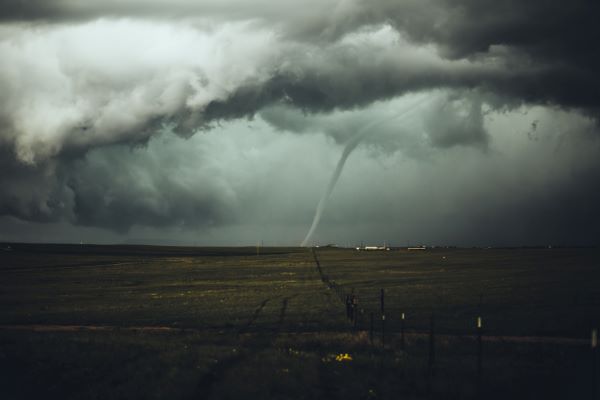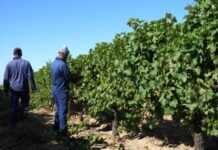In the wake of severe droughts and plagues of locusts, many African farms have become dry, desolate landscapes on the verge of collapse. The consequences can be harsh when fire, flooding or other natural disaster strikes a farm. Climate change is making these events more common throughout Africa. Economic insecurity, widespread population growth and political instability add to the mix, and losing a farm can be catastrophic for families. There are several ways you can help.
How Do Natural Disasters Affect Farms?
African farmers lost $30 billion U.S. dollars due to disasters from 2008 to 2018. During that time, the amount of crop and livestock destruction equated to 559 fewer calories per person per day, exacerbating poverty and malnutrition. In addition to the direct loss of food, natural disasters can:
- Prevent farmers from planting or harvesting crops
- Destroy stored seeds and agricultural equipment
- Lower soil fertility
- Destroy a family’s sole source of income
- Cause post-traumatic stress disorder and the loss of human lives
How to Help After a Disaster
If a catastrophic event has affected your community, you can take action in many ways.
1. Take Inventory
It’s common for livestock and pets to be loose immediately after a disaster. Many of the animals will remain lost unless people actively search for them. After Hurricane Katrina, only around 14% of abandoned or escaped animals were reunited with their owners.
Help your neighbors take inventory of their livestock. Reach out to local animal markets and inform them to watch out for people selling livestock with a particular brand, ear tag or another form of ID. Thieves may catch unattended animals and try to sell them.
2. Observe Animals for Disease
Farmers should inspect their animals for injuries and illness after a disaster. Livestock may develop foot rot or pneumonia following a flood, and fires can cause respiratory issues. Animals may have wounds from flying debris or falling during the disaster, and parasite populations often increase in the presence of standing water. Help your neighbors inspect their herds and administer vaccines, bandages and medications as needed.
3. Remove Hazards
Natural disasters almost always create hazardous conditions on farms. There may be sharp objects in the pasture, damaged fences and gates, unstable buildings or washed-out roads. Help restore order to your community’s farms by clearing out dangerous debris and rebuilding compromised structures.
4. Provide Animal Feed and Seeds
Hay and grain may blow away, get buried or become contaminated with pesticides during a storm. Any remaining feed is often moldy or waterlogged. Help your neighbors by donating animal feed so they can maintain the health of their livestock.
Farmers may also lose seeds or seedlings during the disaster. Provide farmers with new seeds, fertilizer and tools so they can replant their crops.
5. Donate Blood
If you can’t provide hands-on support, donating blood is a selfless way to help a community after a catastrophe. In addition to saving the lives of people injured during the disaster, you’ll also help replenish blood banks that were damaged or destroyed.
6. Give Money
Providing financial aid is often the best strategy to help farms recover from a loss. Africa has a high rate of volunteers by outside tourists in many regions — the global volunteer tourism market is now a $3 billion-a-year industry. Unless you know the victims, donating money is the fastest and most effective way to help.
Farmers can use the funds to purchase exactly what they need, including the right amounts of animal feed, the proper fertilizer, any equipment they lost and specific seeds they want to grow. Donating money to a reputable disaster relief charity ensures the funds will be distributed where people need them most.
Bouncing Back After a Disaster
Agriculture is the foundation of every society. You can volunteer your time, money and resources to help people recover when a natural disaster impacts African farms. Africa is remarkably resilient, but everyone can benefit from the help of friends, neighbors and volunteers in the of a catastrophe.

Jane is an agriculture and environmental journalist and the founder and editor-in-chief of Environment.co, where she covers sustainability and eco-friendly living.








